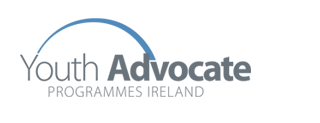external evaluation
The Strengths and Challenges of The YAP Community-Based Advocate Model
In 2019, The UNESCO Child and Family Research Centre based in NUI Galway conducted an independent research study of the YAP Model. The research is a qualitative study of the opinions and experiences of young people, families, referrers, Advocates, Board members and staff within the community based Advocate model. The researchers used a variety of research methods and completed 1:1 interviews with key personnel, focus groups with young people, parents, staff and Board members and an online staff survey to collect information to provide an holistic view of our model. A key part of the research was taking an in depth analysis of 10 case studies involving interviewing the young person, parent/ guardian, advocate, team leader and referrer. YAP Ireland are extremely pleased with the findings and outcomes from this research.
The 8 Key Findings of the Research
-
The development of a supportive relationship between the advocate and the young person is an essential part of the YAP process and acts as a basis from which progress can be made in meeting the identified needs of the young person and change can occur.
-
Advocates investing time to develop a trusting relationship with the young person and their parents is noted as a unique aspect and foundation of the programme.
-
The focus on the positive aspects and strengths of the young person and their families is an essential characteristic of the YAP Model.
-
Strong evidence that the advocates and team leaders use a needs-led approach and that the young person is placed at the centre of the planning process and supported to articulate what he or she wants or needs.
-
Facilitating young people to access local community resources is a key component of the YAP model and this study has emphasised its centrality to the success of the intervention.
-
Listening to the voice of the young person and their family and ensuring their centrality on deciding on an appropriate supportive response is achieved in a range of ways.
-
YAP have in place a range of processes to monitor the effectiveness of the programme delivery.
-
The YAP programme is time limited.
These findings are crucial as it reaffirms that our unique practice of the community-based advocate model works well for our young people and families that access our service. We are very proud to have the voices of our young people, parents, advocates and staff recorded and amplified in this piece of research which we hope will be widely acknowledged.
Longitudinal Evaluation of YAP Ireland CLG
In 2014 NUI Maynooth carried out an external evaluation of the YAP Ireland model. This longitudinal study sought to evaluate the effectiveness of the YAP model in an Irish context, to assess whether the structure of the organisation is fit for purpose and whether its new programmes contribute to positive outcomes for young people and families. The research evaluation methodology included a series of phased Strengths and Difficulties Questionnaires (SDQ) administered to a sample of young people and their guardians, a mid-way fidelity study with the SDQ sample, focus group interviews with managers and advocates and the tracking of individual cases and a comparison with a pre-defined comparator group.
Summary of Research Findings
This evaluation study concludes that the YAP programme is implemented as intended, with treatment fidelity. Managers and Advocates working for YAP Ireland believe in the YAP model, and are also positive about the application of the YAP model in practice, and the benefits for the young people and families participating in the programme. The reported improvements as evidenced by the qualitative data and quantitative SDQ findings represent significant positive outcomes for the young people participating in the YAP programme. The outcomes show improvements in factors which enhance wellbeing, as described in the literature. Happiness and health are associated with physical participation in life, spending time with friends and a sense of belonging within families and communities (Lalor, De Róiste & Devlin, 2007). Correspondingly, resilience and the maintenance of wellbeing in the presence of adversity have been linked to individual factors such as self-esteem and leisure interests; social factors such a sense of belonging and a pro-social peer group; and community factors such as attachment to community networks and access to support services (National Youth Health Programme, 2004). These reported findings in relation to wellbeing suggest that there are clear positive outcomes for young people who participate in the YAP programme.
To view the report please select one of the links below:
INVESTING IN CHILDREN
The Investing in Children Membership Award™ recognises and celebrates examples of imaginative and inclusive practice. Investing in Children members are those services that can demonstrate a commitment to dialogue with young people that leads to change. In 2013, YAP first made contact with Investing in Children in the UK to review how we were promote young people’s voice and rights in our work. In 2013, we became the first organisation in the Republic of Ireland to achieve the award after being successfully being evaluated. Since then, we are evaluated annually and have maintained the award to date. YAP Ireland are evaluated by VOYPIC (Voice of Young People in Care) based in Northern Ireland. YAP Ireland are now the accreditation body for the Investing in Children Award in the Republic of Ireland.
Below, you can find the final evaluations written by Investing in Children on each of our regions in 2019:
- Dublin North Evaluation
- Dublin Mid Leister Evaluation
- South and Midlands Region Evaluation
- West Region Evaluation
For more information on the Investing in Children Membership Award™ click on the link: HERE
